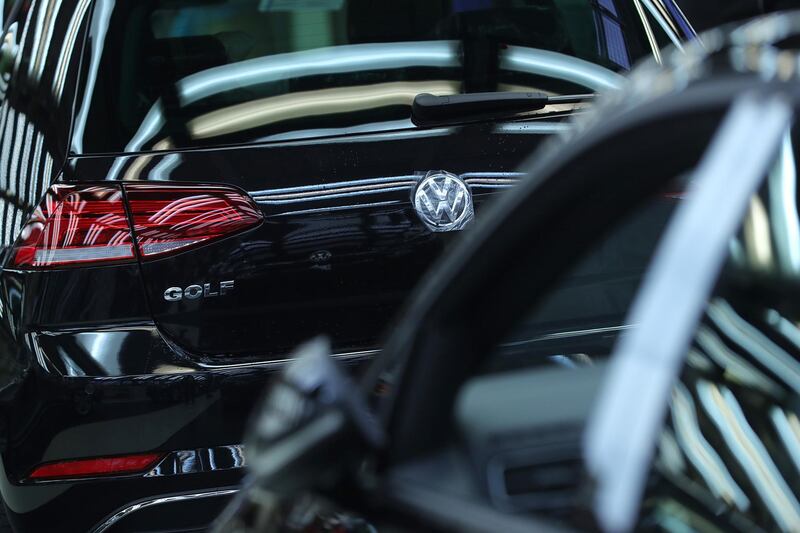Volkswagen engineers have told investigators that certain petrol engines in VW, Audi and Porsche vehicles can be used to manipulate emissions tests, German Sunday paper Bild am Sonntag said.
A spokesman for Volkswagen - the parent company of Audi and Porsche - said VW would not comment on an ongoing investigation, adding that the company in recent months had held intensive talks with the Federal Motor Transport Authority.
"There are no new circumstances here," he said.
Gearboxes and software could be manipulated so that vehicles show lower levels of carbon dioxide (CO2) emissions and fuel consumption, Bild said, citing internal documents and witness statements.
VW's emissions scandal has cost the car maker €27 billion (Dh115.06bn) in penalties and fines for systematic manipulation of diesel-powered cars to mask excessive pollution levels.
_______________
Read more:
VW and Ford consider commercial vehicles alliance
Audi's Bram Schot steps in for jailed CEO chief Rupert Stadler
_______________
In Europe, vehicles are taxed according to their levels of polluting CO2 emissions.
It remains unclear whether the Bild documents represent a new dimension to the Volkswagen cheating scandal since the car maker in 2015 admitted that around 36,000 petrol-fuelled cars were also being tested for excessive emissions.
VW had the 36,000 cars checked by a neutral body under supervision by the regulator and found minimal deviation from requirements. The auto maker was not required to make any technical changes to those vehicles.
Regulators in the United States blew the whistle on deliberate emissions cheating on September 18, 2015 after it emerged that the car maker had developed an engine that failed to conform to pollution standards.
VW used software to detect when a car was being subjected to a regulatory emissions measurement test, and throttled back the engines during the test cycle, masking excessive pollution.
When a car engine was being accelerated and gears changed, VW’s onboard software would check whether the steering wheel was also being used. If the steering wheel angle was not being altered, VW knew a vehicle was strapped to a dynamometer test bench, activating exhaust emission filters.






